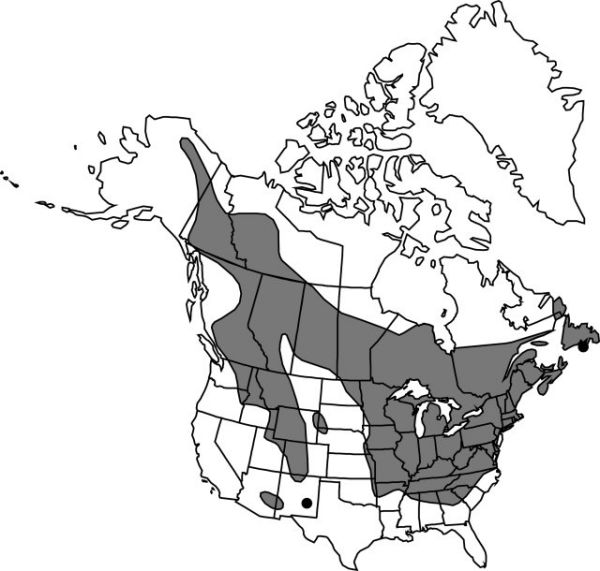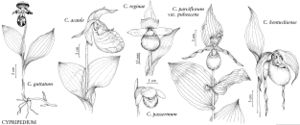Difference between revisions of "Cypripedium parviflorum var. pubescens"
Rhodora 8: 93. 1906.
FNA>Volume Importer |
FNA>Volume Importer |
||
| Line 11: | Line 11: | ||
|name=Cypripedium pubescens | |name=Cypripedium pubescens | ||
|authority=Willdenow | |authority=Willdenow | ||
| − | }}{{Treatment/ID/Synonym | + | }} {{Treatment/ID/Synonym |
|name=Cypripedium veganum | |name=Cypripedium veganum | ||
|authority=unknown | |authority=unknown | ||
| Line 18: | Line 18: | ||
|name=Cypripedium calceolus var. planipetalum | |name=Cypripedium calceolus var. planipetalum | ||
|authority=(Fernald) Victorin & J. Rousseau | |authority=(Fernald) Victorin & J. Rousseau | ||
| − | }}{{Treatment/ID/Synonym | + | }} {{Treatment/ID/Synonym |
|name=Cypripedium calceolus var. pubescens | |name=Cypripedium calceolus var. pubescens | ||
|authority=(Willdenow) Correll | |authority=(Willdenow) Correll | ||
| − | }}{{Treatment/ID/Synonym | + | }} {{Treatment/ID/Synonym |
|name=Cypripedium flavescens | |name=Cypripedium flavescens | ||
|authority=Cockerell | |authority=Cockerell | ||
| − | }}{{Treatment/ID/Synonym | + | }} {{Treatment/ID/Synonym |
|name=Cypripedium parviflorum var. planipetalum | |name=Cypripedium parviflorum var. planipetalum | ||
|authority=Fernald | |authority=Fernald | ||
| Line 65: | Line 65: | ||
|publication year=1906 | |publication year=1906 | ||
|special status= | |special status= | ||
| − | |source xml=https://jpend@bitbucket.org/aafc-mbb/fna-data-curation.git/src/ | + | |source xml=https://jpend@bitbucket.org/aafc-mbb/fna-data-curation.git/src/8f726806613d60c220dc4493de13607dd3150896/coarse_grained_fna_xml/V26/V26_1031.xml |
|subfamily=Orchidaceae subfam. Cypripedioideae | |subfamily=Orchidaceae subfam. Cypripedioideae | ||
|genus=Cypripedium | |genus=Cypripedium | ||
Revision as of 16:40, 18 September 2019
Bracts: abaxial surface of distalmost sheathing bract (and often the next) densely and conspicuously silvery-pubescent when young (later sometimes glabrescent). Leaves 3–5, on proximal portion of or more evenly spaced along stem, alternate, erect to spreading; blade orbiculate or broadly ovate to elliptic-lanceolate or oblanceolate, 7.9–20.9 × 1.5–12 cm. Flowers 1–2, large to rather small (very small in some boreal and northern cordilleran specimens), scent moderate to faint, rose or musty; sepals commonly spotted, striped, and reticulately marked with reddish brown or madder, rarely extensively blotched or wholly unmarked; lip oblance-ovoid to calceolate or subglobose, 20–54 mm; orifice 10–23(–27) mm. 2n = 20.
Phenology: Flowering Apr–Aug.
Habitat: Mesic deciduous and coniferous forest, openings, thickets, prairies, meadows, fens
Elevation: 0–2900 m
Distribution

Alta., B.C., Man., N.B., Nfld. and Labr., N.W.T., N.S., Ont., Que., Sask., Ariz., Colo., Conn., D.C., Ga., Ill., Ind., Iowa, Kans., Ky., Maine, Md., Mass., Mich., Minn., Miss., Mo., Mont., N.H., N.J., N.Mex., N.Y., N.C., Ohio, Oreg., Pa., R.I., Tenn., Utah, Vt., Va., Wash., W.Va., Wis.
Discussion
Selected References
None.
